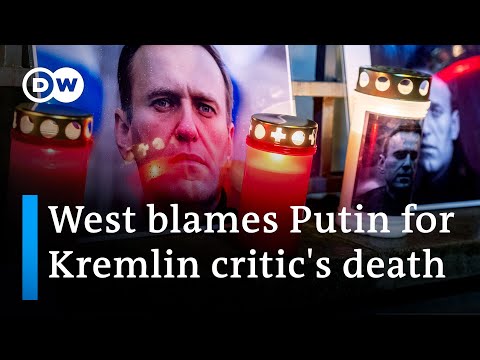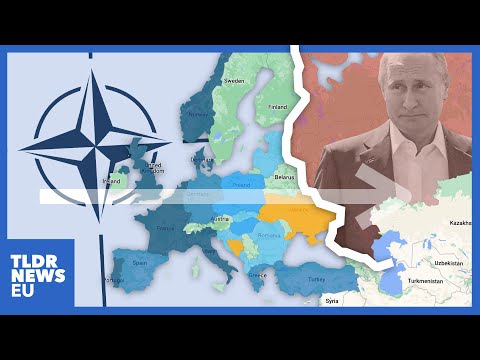What are Putin’s views on democracy?
Are you curious to know more about Putin’s views on democracy? As a researcher in the field, you may find yourself pondering this question quite often. Vladimir Putin, the President of Russia, has been a prominent figure on the global stage for many years. His views on democracy have sparked debate and controversy, leading many to question his stance on this fundamental principle. Let’s delve deeper into Putin’s thoughts on democracy and explore the complexities of his perspective.
1. **History of Putin’s Relationship with Democracy**: Putin’s journey with democracy has been a tumultuous one. Emerging from the fall of the Soviet Union, Putin initially embraced democratic ideals, promising to uphold the rule of law and protect individual freedoms. However, over time, his actions have raised concerns about his commitment to democratic principles.
2. **Putin’s Critique of Western Democracy**: Putin has been vocal in criticizing Western democracies, particularly the United States and its allies. He views their interventions in other countries as hypocritical and driven by self-interest rather than a genuine desire to promote democracy. Putin believes that Western democracies often use democracy as a tool to advance their own agendas, undermining the sovereignty of other nations.
3. **Putin’s Vision of Sovereign Democracy**: In response to what he perceives as Western interference, Putin has put forward the concept of “sovereign democracy.” This approach emphasizes the importance of preserving national sovereignty and tailoring democratic institutions to fit the unique cultural and historical context of each country. Putin argues that democracy should not be imposed from outside but should evolve organically within each nation.
4. **Authoritarian Tendencies**: Despite his rhetoric about sovereignty, Putin’s actions have raised concerns about his commitment to democratic values. Critics point to his consolidation of power, crackdown on political opposition, and restrictions on media freedom as evidence of his authoritarian tendencies. Putin’s critics argue that his version of democracy is more about maintaining control than promoting genuine political pluralism.
5. **Justification for Strong Leadership**: Putin often justifies his strong leadership style by emphasizing the need for stability and security in Russia. He argues that the chaotic transition in the 1990s left the country vulnerable and that a firm hand is necessary to maintain order. Putin’s supporters view him as a strong leader who has restored Russia’s status as a global power, even if it means sacrificing some democratic norms.
6. **Balancing Act**: Putin’s views on democracy reflect a delicate balancing act between the desire for stability and the demands for political reform. While he pays lip service to democratic principles, his actions suggest a more authoritarian approach to governance. Putin’s complex relationship with democracy highlights the challenges of navigating the tension between stability and political openness in a rapidly changing world.
In conclusion, Putin’s views on democracy are multifaceted and nuanced, reflecting the complexities of his political ideology. While he presents himself as a defender of national sovereignty and cultural identity, his actions raise questions about his commitment to democratic values.
Understanding Russia’s Political System: Exploring the Type of Democracy in the Kremlin
**What are Putin’s views on democracy?**
– **Authoritarian Tendencies**: Putin’s views on democracy are often characterized by his authoritarian tendencies, which prioritize centralized control and stability over individual freedoms and political pluralism. This is evident in his crackdown on opposition voices and independent media outlets, as well as his efforts to consolidate power within the Kremlin.
– **Sovereignty and Nationalism**: Putin’s vision of democracy also emphasizes sovereignty and nationalism, with a focus on protecting Russia’s interests in the face of external threats. This is reflected in his assertive foreign policy stance and his promotion of a strong, centralized state apparatus as a means of safeguarding Russia’s position on the global stage.
– **Hybrid Regime**: Some scholars argue that Russia’s political system can be best described as a “hybrid regime,” combining elements of both democracy and authoritarianism. While elections are held regularly, the playing field is heavily skewed in favor of the ruling party, and opposition candidates often face significant obstacles in their campaigns.
– **Limited Political Pluralism**: Despite the presence of multiple political parties in Russia, the political landscape is dominated by Putin’s United Russia party, which enjoys a significant advantage in terms of resources and media coverage. This limits political pluralism and makes it difficult for opposition forces to challenge the status quo.
– **Checks and Balances**: Unlike Western democracies, Russia’s political system lacks robust checks and balances to constrain executive power. The judiciary, legislature, and media are all subject to varying degrees of state control, which further reinforces Putin’s grip on power.
– **Civil Society Restrictions**: Putin’s government has also imposed restrictions on civil society organizations, making it difficult for independent groups to operate freely and advocate for political change.
This limits the ability of citizens to organize and mobilize against the government’s policies.
– **Conclusion**: In conclusion, Putin’s views on democracy are shaped by his authoritarian tendencies, emphasis on sovereignty and nationalism, and efforts to maintain control over Russia’s political landscape. While Russia does hold regular elections, the political system is characterized by limited pluralism, weak checks and balances, and restrictions on civil society. This raises questions about the true nature of democracy in the Kremlin and the prospects for political reform in the future.
Exploring the Russian Model of Democracy: A Closer Look at Putin’s Governance
**What are Putin’s views on democracy?**
1. **Authoritarianism**: Putin’s governance style leans towards authoritarianism rather than democracy. He believes in a strong central government with power concentrated in the hands of a few, rather than a system of checks and balances that characterizes democratic governance. This allows him to maintain control and make decisions without much opposition.
2. **Limited political opposition**: Putin’s government has been known to suppress political opposition, limit freedom of speech, and control the media. This restricts the ability of opposition parties to gain traction and pose a threat to his rule, effectively consolidating his power.
3. **Nationalism**: Putin often emphasizes the importance of Russian nationalism, portraying himself as a strong leader who prioritizes the interests of the Russian state above all else. This focus on nationalism can sometimes overshadow democratic principles and individual rights.
4. **Hybrid regime**: Putin’s governance has been described as a hybrid regime, combining elements of democracy with authoritarianism. While there are some democratic processes in place, such as elections, they are often criticized for lacking transparency and fairness.
5. **Centralized power**: Putin has centralized power in the hands of the presidency, diminishing the role of other branches of government such as the legislature and judiciary. This concentration of power can be seen as a departure from the principles of democracy, where power is meant to be distributed among different branches to prevent abuse.
In conclusion, Putin’s views on democracy are complex and often controversial. While he may pay lip service to democratic ideals, his actions and policies reflect a governance style that prioritizes control, nationalism, and centralized power. Understanding these views is crucial in exploring the Russian model of democracy under Putin’s rule.
The Origins of Russian Democracy: What Was It Called?
Have you ever wondered about the origins of Russian democracy and what it was called? Well, let’s delve into this fascinating topic. Russian democracy, also known as **Sobornost**, originated in the 19th century as a concept that emphasized the unity of the Russian people. It was a form of communal self-government that aimed to promote solidarity and cooperation among different social groups. This early form of democracy laid the foundation for future political developments in Russia.
**Sobornost** was based on the idea of consensus building and collective decision-making, where all members of the community had a say in important matters. This system of governance reflected the traditional Russian values of community, equality, and mutual respect. While not a perfect democracy by modern standards, **Sobornost** represented a significant step towards greater political participation and representation in Russian society.
Fast forward to the present day, and we find ourselves asking: what are Putin’s views on democracy? Vladimir Putin, the current President of Russia, has been criticized for his authoritarian style of leadership and his restrictive policies towards political opposition. Despite claiming to support democratic principles, Putin’s actions have often been seen as undermining the foundations of democracy in Russia. His government has been accused of suppressing free speech, cracking down on dissent, and manipulating elections to maintain power.
In conclusion, the origins of Russian democracy can be traced back to the concept of **Sobornost**, which emphasized unity and collective decision-making. However, the current political landscape in Russia, under President Putin’s rule, raises questions about the true nature of democracy in the country. As Russia continues to navigate its complex political history, the legacy of **Sobornost** serves as a reminder of the importance of community and cooperation in shaping the future of democracy.
**Frequently Asked Questions about Putin’s views on democracy:**
**1. Does Putin believe in the principles of democracy?**
**2. How does Putin justify his strongman tactics in Russia?**
**3. What is Putin’s stance on free speech and media freedom?**
**4. How does Putin view Western democracy?**
In conclusion, Vladimir Putin’s views on democracy are complex and often controversial. While he claims to support democratic principles, his actions as the leader of Russia suggest a more authoritarian approach. Putin’s strongman tactics, control over the media, and skepticism towards Western democracy all contribute to a nuanced understanding of his beliefs. Understanding Putin’s views on democracy requires a careful examination of his words and actions, as well as a recognition of the broader geopolitical context in which he operates.


